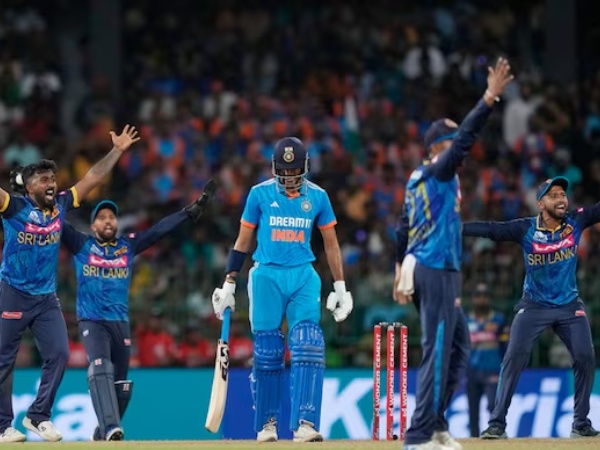views : 654
3 Min Read
Abhishek Nayar Talks About India's Loss In The IND vs SL 2nd ODI
Following the dramatic tie in the first ODI between India and Sri Lanka, the teams faced off again on Sunday, August 4, at the R. Premadasa Stadium in Colombo. India, eager to secure a win and gain momentum, saw their plans thwarted as Sri Lanka emerged victorious in the second ODI. India’s assistant coach, Abhishek Nayar, shared his insights on the match, highlighting the crucial contributions of Sri Lankan spinner Jeffrey Vandersay and the lower order, which played a significant role in their victory. Vandersay’s exceptional bowling performance was a key factor, as he dismantled the Indian batting lineup and was instrumental in restricting their run chase. Additionally, the lower order's resilience added pressure and compounded India’s difficulties.
Nayar also emphasized the impact of the pitch conditions on the outcome of the game. The nature of the pitch, he noted, significantly influenced India’s performance, making it challenging for the batsmen to build partnerships and chase the target effectively. The combination of a difficult pitch and effective Sri Lankan bowling created a formidable challenge for the Indian side, ultimately leading to their defeat. Nayar's observations reflect the complexities of playing conditions and the crucial role they play in determining the outcome of a cricket match.
"Was it a shock? I would say yes, there is a surprise, but you anticipate and understand that in these conditions the game can turn on its head because there is so much spin on offer,” Abhishek Nayar was quoted as saying in a recent interview.
"Even if you look at the last game, it was relatively easy to score against the new ball. As the ball got older, the conditions when batting second got slightly tougher. Sometimes in tough conditions, especially in the 50-over format, this happens. They bowled well - I think Vandersay bowled the ideal length in these conditions. In such conditions, when the ball is turning – and the way Vandersay bowled today, used his finger, and bowled stump to stump – you get these phases when there is assistance from the pitch. I feel today we should give more credit to Sri Lanka," he added.
Nayar discussed the need for the team to thoroughly analyze their recent performances to understand the reasons behind their struggles in consecutive matches. He highlighted the importance of reviewing both the first and second ODIs to identify key issues. Reflecting on the first ODI, Nayar pointed out that India’s failure to build partnerships was a major factor in their inability to secure a win. In the second ODI, he noted that the team faced a different challenge—losing several wickets in rapid succession, which derailed their chase.
Nayar emphasized that addressing these recurring problems is crucial for improving the team’s performance. He acknowledged that both matches presented different difficulties but shared a common theme: a lack of resilience and adaptability in critical moments. By examining these aspects closely, Nayar and the team aim to pinpoint the underlying causes and implement strategies to overcome these challenges in future games. This reflective approach is intended to help India regain their form and enhance their performance in the remaining matches of the series.
"We want to go back and understand and rectify why it happened twice in a row. The day before yesterday, we were able to stitch partnerships. But today we lost quite a few wickets in a bundle,” Nayar said.
